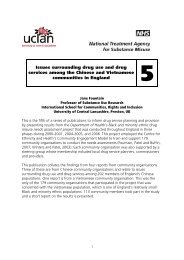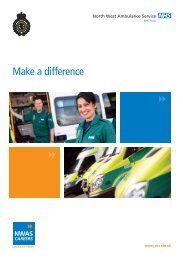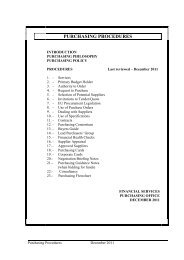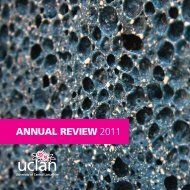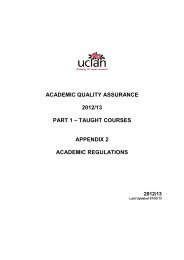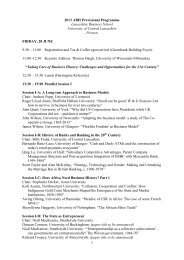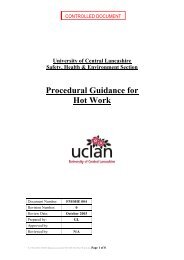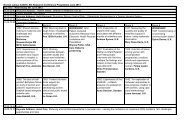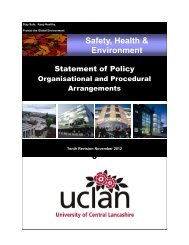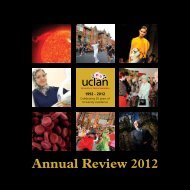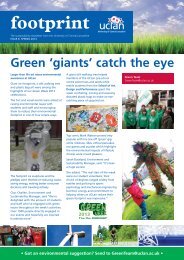Autumn 2011 Issue - University of Central Lancashire
Autumn 2011 Issue - University of Central Lancashire
Autumn 2011 Issue - University of Central Lancashire
Create successful ePaper yourself
Turn your PDF publications into a flip-book with our unique Google optimized e-Paper software.
Feature Articles<br />
9<br />
Nursing Children at Home<br />
An Interview with Bernie Carter<br />
School <strong>of</strong> Health<br />
Pr<strong>of</strong>essor Mike Holmes, Head <strong>of</strong> the<br />
Graduate Research School, and Alison<br />
Naylor went to meet with Pr<strong>of</strong>essor Bernie<br />
Carter, following the recent publication <strong>of</strong><br />
Department <strong>of</strong> Health Report ‘NHS at Home:<br />
Community Children’s Nursing Services’.<br />
Mike joined Bernie in her <strong>of</strong>fice in Brook<br />
Building, and began with a key question<br />
– What is your research about?<br />
Broadly my research is to do with children<br />
and their experiences <strong>of</strong> being ill and in pain.<br />
This involves me researching with (not on)<br />
them, their siblings and their families.<br />
Children’s nursing is family orientated so that<br />
means we always think <strong>of</strong> the child in the<br />
context <strong>of</strong> their family. In the last couple <strong>of</strong><br />
years, most <strong>of</strong> my work has been with<br />
children who have complex healthcare needs<br />
such as cancer, congenital disorders and / or<br />
disabilities. All <strong>of</strong> my work is trying to find<br />
out about their experiences <strong>of</strong> sickness,<br />
disability, treatment and interventions.<br />
I’m also interested in how healthcare<br />
pr<strong>of</strong>essionals treat them, the changes that<br />
illness brings to their family and friends<br />
them, and the ways in which they can<br />
become either marginalised by or integrated<br />
into society.<br />
My research with children is mainly<br />
qualitative and I use an arts/activities and<br />
story based approach which is quite<br />
innovative. I use the stories the children tell<br />
me to gain insights into their worlds. I want<br />
to understand their perceptions <strong>of</strong><br />
healthcare pr<strong>of</strong>essionals. I want to improve<br />
services and the way we communicate with<br />
the children about their illness and how we<br />
can support them. A lot <strong>of</strong> the children that<br />
children’s nurses care for in <strong>2011</strong> would<br />
never have previously survived beyond the<br />
neonatal period or early childhood. Although<br />
many more children survive, many have high<br />
levels <strong>of</strong> morbidity. Survival is now possible<br />
due to new medications and new<br />
technology which also improves the quality<br />
<strong>of</strong> survival. For example, back in the late<br />
1970s when I trained as a nurse, a life<br />
support machine (ventilator) used to be the<br />
equivalent size <strong>of</strong> a couple <strong>of</strong> filing cabinets<br />
(and sound like a twin tub washing



